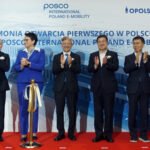Introduction to Jeong Cheol
Jeong Cheol, a prominent figure in Korean history, emerged during the Joseon Dynasty, which lasted from 1392 to 1910. His life, spanning from 1536 to 1593, encapsulates an era rich in cultural and intellectual development. As a scholar, poet, and government official, Jeong Cheol’s influence was significant, embodying the complexities of Confucian philosophy and its application in governance and literature. He served as a civil servant, holding various official posts that allowed him to contribute to the administration and cultural life of his time.
Jeong Cheol is perhaps best known for his contributions to Korean poetry, particularly in the form of “sijo,” a traditional three-line verse that allows for depth of thought and emotional expression. His poetry reflects not only his personal sentiments but also broader societal issues prevalent in eighteenth-century Korea. Through his work, he captured both the beauty of nature and the turmoil of human existence, making his poetry relatable across generations. The richly layered themes in his poems reveal his keen awareness of the world around him, as well as the philosophical introspections of a thoughtful scholar.
The Early Life of Jeong Cheol
Jeong Cheol, a prominent figure in Korean literature of the 16th century, was born into a family that valued education and scholarly pursuits. Born in 1536 in the city of Gyeongju, he was the son of a distinguished Confucian scholar. This familial environment played a pivotal role in shaping his character and intellect from a young age. The influences of Confucian principles were deeply woven into the fabric of his upbringing, instilling in him a reverence for knowledge, morality, and tradition.
Jeong Cheol’s formal education began early, as he was exposed to classical texts and the teachings of Confucius. His academic journey was characterized by not only a rigorous study of the classics but also by an enthusiasm for poetry and the arts. The initial stages of his education were marked by his affinity for writing poetry, which would later become a hallmark of his literary career. The combination of a supportive family background and an enriched educational environment allowed him to cultivate his literary talent effectively.
During his formative years, Jeong Cheol faced several challenges that further shaped his perspectives and literary voice. The socio-political climate of Korea during the mid-16th century was rife with tension and conflict, especially among the ruling classes. These circumstances sparked a passion for social justice and reform within him. It was in this context that he began to write, using his poetry as a medium to express his thoughts about the injustices he observed around him. His early works often reflected his desire to evoke change, merging traditional Confucian values with innovative poetic expressions.
The confluence of a nurturing upbringing, rigorous education, and socio-political experiences set the stage for Jeong Cheol’s later achievements. These early influences not only imparted knowledge but also kindled the flame of creativity and purpose that would define his multifaceted journey as a renowned poet and literary figure in Korea.
Jeong Cheol as a Poet
Jeong Cheol, a prominent figure in Korean literature during the Joseon Dynasty, is celebrated not only for his political involvement but also for his distinctive poetry style. His works encapsulate a profound exploration of personal emotions interwoven with societal reflections, allowing readers a glimpse into the complexities of his time. Jeong Cheol’s poetry often utilizes a unique blend of classical forms and innovative expressions, which contributes to the rhythmic beauty of his verses. This duality is evident in his ability to evoke deep sentiments while addressing significant issues facing society.
The themes in Jeong Cheol’s poems range from love and longing to disillusionment and existential contemplation, reflecting both his personal experiences and broader cultural themes. His poignant reflections on love often explore the tensions between desire and the constraints of societal expectations. Additionally, his critiques of corruption and moral decay during the Joseon period showcase his engagement with pressing social issues. These themes are not merely a product of his imagination but resonate with the struggles of his contemporaries, making his poetry relevant across generations.
Among his notable works, the poem “A Song of My Heart” stands out for its lyrical beauty and emotional depth. The poem encapsulates themes of yearning and sorrow, drawing upon nature as a metaphor for the poet’s inner turmoil. Similarly, “Ode to the West Wind” reflects his concern for the nation’s moral direction while expressing a longing for renewal and hope. Through his evocative imagery and rich symbolism, Jeong Cheol offers readers an insightful pathway into the cultural and emotional landscape of his era, making his poetry an enduring pillar of Korean literary heritage.
The Influence of Confucianism on Jeong Cheol
Jeong Cheol, a prominent figure in Korean history, was deeply influenced by Confucianism, a philosophical system that emphasizes moral integrity, social harmony, and the importance of education. Confucian values permeated his life and work, shaping not only his poetic expressions but also his approach to governance and ethical conduct. Growing up in a society where Confucian ideals were pivotal, Jeong Cheol’s worldview was rooted in concepts such as filial piety, loyalty, and the pursuit of virtue, which are central themes in Confucian teachings.
As a poet, Jeong Cheol beautifully integrated Confucian ideals into his work. His poetry often reflects a deep understanding of the natural world, expressing a sense of harmony that aligns with Confucian thought. He articulated the idea of self-cultivation, which resonates strongly with Confucian teachings that advocate for personal and moral development. This focus on inner virtues became a hallmark of his literary style, allowing him to convey complex emotions while adhering to the principles of Confucian morality.
Moreover, Jeong Cheol’s role as a government official was also markedly influenced by Confucianism. His perspective on governance was grounded in the belief that rulers should embody ethical principles and prioritize the welfare of their subjects. Jeong Cheol viewed governance as an extension of moral responsibility, advocating for policies that reflected Confucian ideals of benevolence and responsibility. This sense of duty extended to his approach in public service, where he strove to create a just society through moral administration. Consequently, Confucianism was not merely an ideological backdrop for Jeong Cheol, but a guiding framework that influenced his artistic output and his aspirations within the political landscape of his time.
Political Intrigue and Jeong Cheol’s Role in Government
Jeong Cheol, a prominent figure during the Joseon Dynasty, navigated a complex political landscape marked by intrigue, factionalism, and shifting allegiances. His career exemplifies the challenges faced by statesmen in this tumultuous period. As a scholar-official, Jeong Cheol served in various capacities within the government, witnessing firsthand the tensions between different factions in the court. His role involved not only the execution of administrative duties but also the art of maneuvering through political rivalries that threatened stability.
Throughout his tenure, Jeong Cheol was often at the nexus of considerable political conflict. One of the most significant challenges he encountered was the intense rivalry between the Eastern and Western factions, which defined much of the political discourse during his time. These factions were often embroiled in disputes over governance, policy implementation, and appointments, leading to a fractious environment where personal loyalties often superseded the common good. Jeong Cheol, adept in his political dealings, formed strategic alliances with key figures to bolster his influence and contribute to governance more effectively.
Moreover, his contributions were not merely administrative; they extended to intellectual pursuits that shaped policy discussions and cultural practices. Jeong Cheol’s writings and philosophies reflected a deep engagement with Confucian ideals, which were pivotal in guiding the moral and ethical framework of governance. Despite facing opposition from rival factions, he maintained a commitment to his principles, which often placed him in precarious positions within the court hierarchy.
In conclusion, Jeong Cheol’s journey through the intricacies of political life in the Joseon Dynasty showcases the multifaceted nature of governance during this era. His ability to navigate alliances while contending with rivalries illustrates the dynamic challenges faced by officials of his time, ultimately contributing to his legacy in Korean history.
Personal Struggles and Resilience
Jeong Cheol, a prominent figure in Korean history, faced numerous personal challenges throughout his life that significantly impacted his work and worldview. One of the foremost struggles he encountered was the profound grief associated with the loss of loved ones. The emotional turmoil stemming from these losses permeated his poetry, as he sought solace and meaning in his artistic expression. This grief not only influenced the thematic elements of his works but also enabled him to connect deeply with the human experience, demonstrating the universal nature of sorrow and the resilience required to navigate it.
In addition to personal losses, Jeong Cheol lived through a period of significant political strife in Korea. The turbulence of the times fostered an atmosphere of uncertainty and fear, themes that frequently emerged in his writings. The political changes and societal tensions spurred by conflicting ideologies made it necessary for Jeong Cheol to evaluate and articulate his beliefs about governance, morality, and the human condition. By wrestling with these complex issues, he was able to refine his creative voice, producing poetry that resonated with others facing similar existential dilemmas.
Moreover, Jeong Cheol’s resilience can be seen in his ability to transform his suffering into a rich tapestry of poetic expression. His works often reflect a profound understanding of the fragility of life and the endurance of the human spirit. Through the lens of his personal trials, he articulated a vision that transcended his own circumstances, fostering a sense of hope and perseverance among his audience. Ultimately, Jeong Cheol’s ability to navigate grief, loss, and societal upheaval exemplifies the strength of artistic expression in confronting life’s most challenging moments, solidifying his legacy as a poignant voice in Korean literature.
Legacy and Impact of Jeong Cheol’s Work
Jeong Cheol, a prominent figure in Korean literature, left an indelible mark through his poetic expressions and political endeavors. His work not only reflects the socio-political landscape of his time but also resonates with contemporary audiences, revealing universal themes of human experience. As a poet, Jeong Cheol adeptly fused traditional Korean literary forms with innovative expressions, establishing a unique voice that continues to inspire modern poets and writers.
The thematic richness of Jeong Cheol’s poetry encompasses a variety of subjects, including love, nature, and the complexities of life. His ability to articulate profound emotions and sentiments in verse allows his work to transcend the confines of time, making it relevant even in today’s fast-paced world. Contemporary readers often find solace and reflection in his exploration of existential themes, discovering layers of meaning that resonate with the current social climate. This enduring relevance highlights the timeless nature of Jeong Cheol’s contributions to Korean literature.
Moreover, Jeong Cheol’s political involvement showcases his commitment to social justice and the welfare of the common people. His poems often served as a vehicle for political expression, advocating for meaningful change in an uncertain era. This intersection of literature and activism has ensured that his legacy is not solely confined to poetic mastery but extends to his role as a thinker and reformer. In modern Korean culture, Jeong Cheol is celebrated as a symbol of resilience and integrity, embodying values that continue to inspire civic engagement and artistic innovation.
Through educational initiatives and cultural programs, Jeong Cheol’s influence remains salient in contemporary society. His work is frequently studied in schools and literary circles, encouraging new interpretations and critical discourse. Consequently, the legacy of Jeong Cheol endures, fostering appreciation for not only his literary brilliance but also his unwavering commitment to political and social advocacy.
Comparative Perspectives: Jeong Cheol and His Contemporaries
Jeong Cheol, a prominent figure in Korean literature during the 17th century, stands out not only for his poetic prowess but also for his intricate relationship with fellow literary intellects of his time. The era in which Cheol lived was marked by key figures such as Kim Man-jung and EoYoon, whose contributions to poetry and prose shaped the cultural landscape. While all three shared a common commitment to literature, their stylistic choices and underlying philosophies set them apart.
Cheol’s poetry is often celebrated for its emotional depth and philosophical reflections, markedly distinguishing him from contemporaries like Kim Man-jung, who adopted a more narrative-driven approach. Kim’s works, including his celebrated novel “The Cloud Dreams of the Nine,” focus on storytelling infused with socio-political critique, an aspect that resonates with the political challenges of their times. In contrast, Cheol’s works are more introspective, utilizing metaphors and nature imagery to explore personal and emotional themes, thereby emphasizing individuality in his literary expression.
The political backdrop of 17th century Korea also influenced these writers significantly. Jeong Cheol, as a member of the ruling elite, often infused his poetry with subtle political critique, reflecting on the harsh realities of governance and societal expectations. His dilemmas mirror those found in the writings of contemporaries; however, whereas many opted for overt criticism, Cheol maintained an intricate balance, allowing for a nuanced examination of loyalty and discontent. This reflects a philosophical divergence, where Cheol’s contemplative stance can be juxtaposed against the more direct political engagement seen in the works of Kim or EoYoon.
Ultimately, the literary tapestry woven by Jeong Cheol and his contemporaries brings forth a rich dialogue about the interplay of personal philosophy, political context, and artistic expression. This comparative perspective deepens our understanding of Cheol’s unique position within the broader narrative of Korean literature, highlighting his significance alongside fellow literary giants.
Conclusion: The Enduring Allure of Jeong Cheol’s Narrative
The narrative of Jeong Cheol continues to resonate within modern society, offering insightful reflections that transcend time. This enduring allure stems not only from the depth of his poetry but also from the universal themes of love, nature, and the human experience that pervade his work. Jeong Cheol’s ability to articulate profound emotions elevates his poetry beyond mere artistic expression; instead, it acts as a conduit for cultural and historical contemplation.
His experiences as a scholar and poet during the turbulent Joseon Dynasty allow modern readers to glimpse the complexities of societal norms and the intellectual struggles of his time. Jeong Cheol’s reflections provide a lens through which we can consider our own societal challenges and philosophical inquiries. By examining his life and work, contemporary individuals are encouraged to engage with both the aesthetics and the ethical considerations his writings pose.
Additionally, the richness of Jeong Cheol’s language and his skillful use of imagery provide a gratifying exploration for those willing to delve into Korean literature. His ability to evoke emotion through carefully chosen words highlights a mastery that continues to inspire writers and poets today. It becomes evident that Jeong Cheol’s poetry is relevant now more than ever, serving as a reminder of the human condition—its joys, sorrows, and existential quests.
As we reflect on His multifaceted tale, we are invited to revisit his works, not only to understand their historical context but to derive meaning that aligns with our contemporary lives. Engaging with Jeong Cheol’s poetry allows us to confront our emotions and fosters a deeper connection to the artistic heritage of Korea. His narrative remains significant and thought-provoking, encouraging ongoing reflection on the themes that have shaped both literature and society throughout time.















